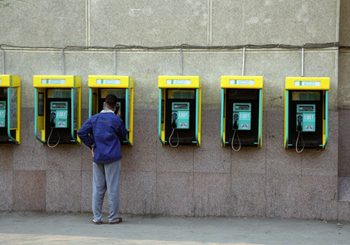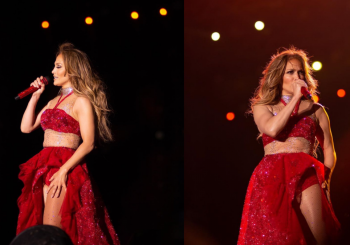Two strangers. One blind date. Will there be a second one?
Premiered in February 2022, ‘The Blind Date show’ introduced Egypt’s audience to a different yet exciting type of entertainment, sparking conversations amongst various circles. Screened on YouTube on Tuesdays, the 15 to 25-minute videos revolve around two strangers, separated by a thin wall, who test their compatibility with one another.
The two strangers are presented with three set topics: money, lifestyle and social life. During each round, many questions arise, including “who pays on a first date?” and “what are your relationship red flags?”
Based on their answers, they give each other scores, and before revealing their identities, they decide whether they will go out on a second date or not.
The show itself is the brainchild of local media company Binge Circle.
Asking the right questions?
Dating is not a widespread practice in Egypt, although for some Egyptians, particularly in certain social circles, dating has taken a more Western approach. Recently, Egyptians have been exploring the wide possibility of finding their ‘match’ through their online dating applications, such as Bumble.
However, Egypt still remains a country where arranged marriages are common to a large degree, and informal dating often happens discreetly. Many couples also meet through mutual friends, college, and workplaces.
One of the reasons this segment is gaining success, with views that range from 50,000 to 100,000 per video, is that it is exposing Egypt’s obscure dating culture, because with each question asked, viewers begin formulating their own answers , especially to the topics that are not casually brought up.
“There are certain topics that became normalized because of the show. Whether it was money, weddings, or house bills, just talking about these topics publicly made people discuss them more,” explains Dona Emam to Egyptian Streets, an actress who guest-starred on the show.
Emam underscores that although dating is not widely acceptable, the show is slowly working to normalize the idea of it. She explains that it could also work to potentially shift the mindset of many Egyptians.
“Going on a date doesn’t necessarily mean that it will yield something formal as an engagement,” Emam says. “A while ago, my parents would not have accepted me casually dating, but because of the show, they started seeing why it is important.”
We’re not going on a second date
Though for many people the show is opening more honest conversations about Egypt’s dating culture, others feel like it waters down the idea of dating to a large degree.
“It is definitely opening conversations, but no more than those raised in a Twitter argument. It waters down dating, a lot of the pairs on the show are fundamentally different, and that is not how it usually goes in real life dating,” says Salma Mostafa, a 21-year-old Spanish translation undergraduate at Cairo University.
For others, the idea of trying to ‘date’ in front of a camera must have dire effects on the genuineness of the two strangers.
Researchers at the University of Limerick concluded that the majority of dating shows are hugely limited in their depictions of relationships.
The show is done for pure entertainment, with sprinkles of comedy for a good laugh, thus, people can subconsciously try to be overly impressive in front of the camera, creating a false narrative and a false connection between the pair.
Another argument points towards the questions asked, with many perceiving the questions as not reflective of the arching principles of dating, which essentially lean towards getting to know the other person more.
“It may be opening up the conversation, but the topics discussed fall more under gawaz salonat (arranged marriages) than dating. The questions asked are also repetitive, and need to be diverse to a large extent,” says Noha Attar, Architectural Engineering student at Cairo University.
Overall, the show is opening new horizons for understanding the importance of dating , and opening important conversations before diving into intimate relationships.
It has managed to tap into the hidden intricacies of dating, shedding light on it in a humorous manner. If nothing else, it shines light on the differences in perceptions between people, hopefully providing room for more honest conversations.







Comments (0)